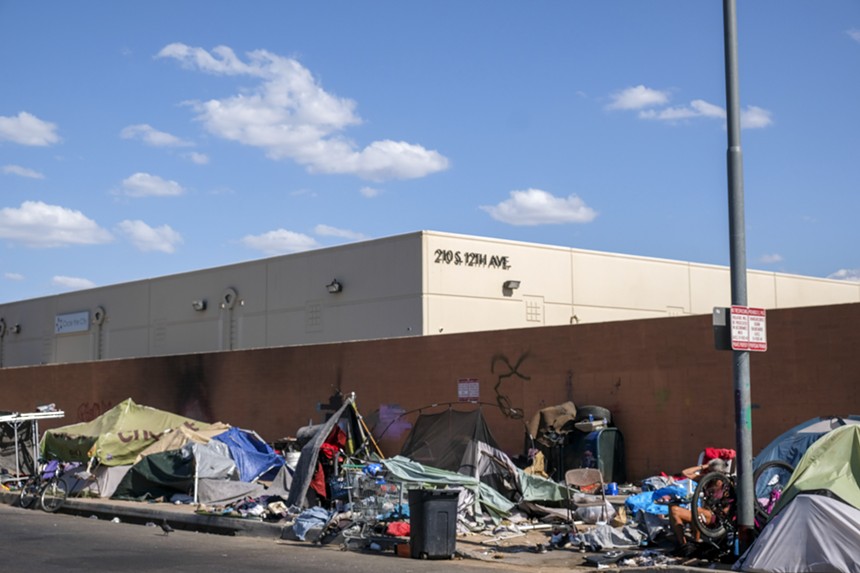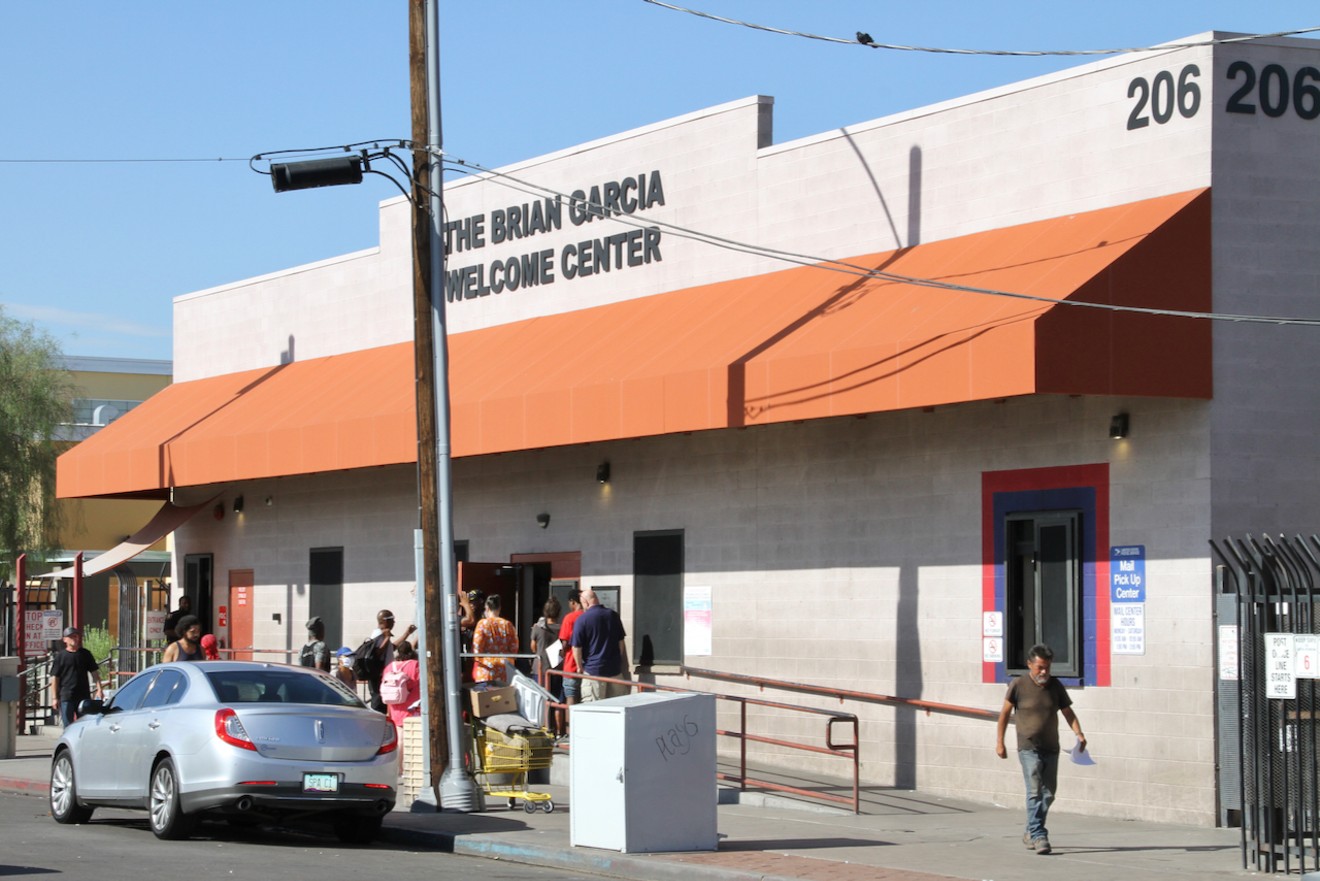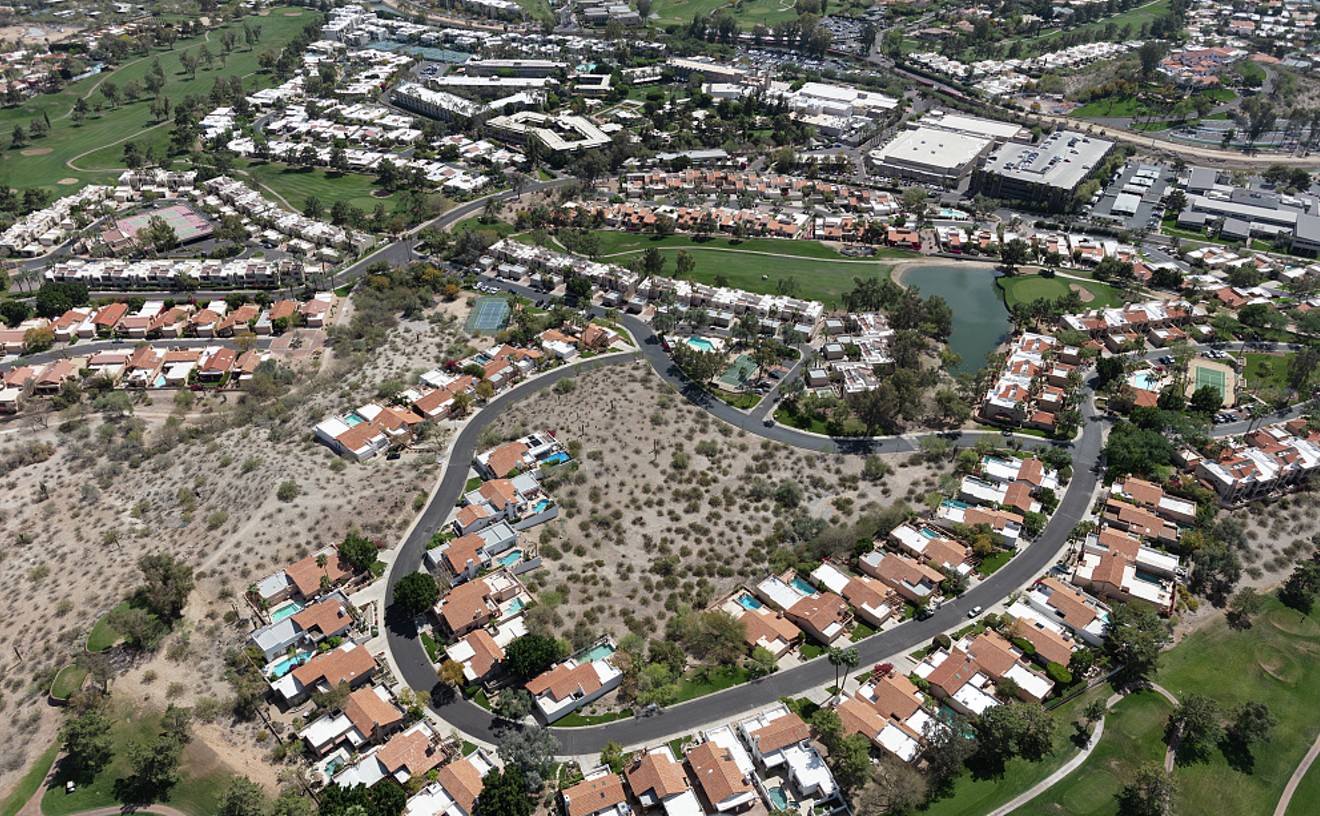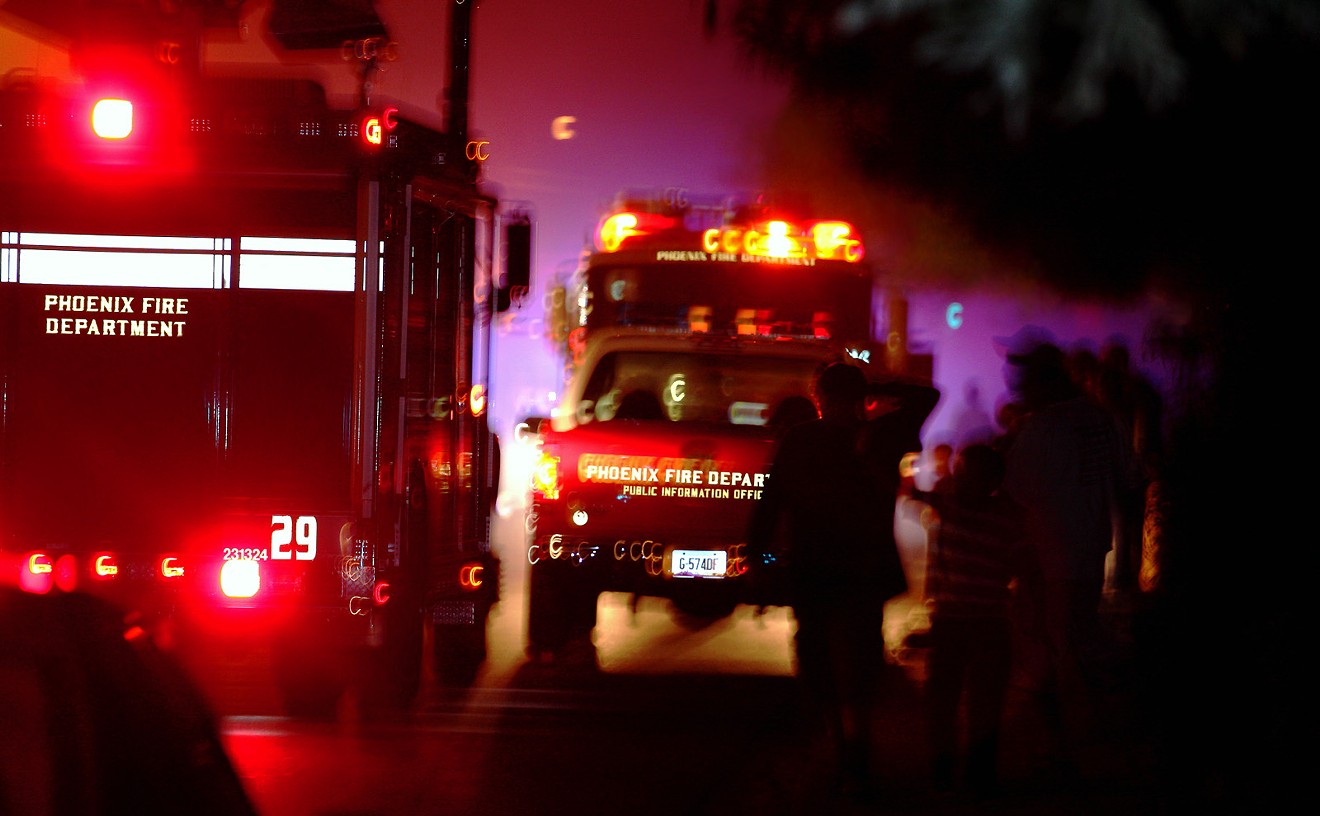The young woman was thrilled with the news. But she had arrived at the homeless shelter at a difficult time. The air conditioning in the women's wing of the 600-bed shelter was not working.
The woman spoke with Phoenix New Times on the condition that she remain anonymous. She shed new light on the five-day air conditioning failure at the end of July at CASS, located at the Human Services Campus in downtown Phoenix. CASS and HSC are surrounded by the Zone, the homeless encampment where hundreds of people live in tents and other homemade structures.
CASS is Arizona's largest emergency homeless shelter and therefore provides an important respite from Phoenix's extreme — and sometimes deadly — summer heat. The woman arrived at CASS on July 22, a day the temperature in Phoenix reached a record-breaking 118 degrees.
That night, she found herself in an intolerably hot dorm with 40 other women, she said.
"I would go outside, and I'd come back inside [the shelter], and I'd still be sweating so much, and it'd be so bad," the woman told New Times on July 31, several days after she left CASS for a different shelter. She recalled that although the shelter had some fans operating, her dorm was left with virtually "no airflow."
‘The AC had been down for days’
According to ABC15's report on the air-conditioning issues at CASS, the organization initially said that it was not aware of any problems with the unit until July 25.Yet, the woman who spoke with New Times said that the issues were present when she arrived on July 22, as did shelter residents who spoke with ABC15. "According to the girls there, the AC had been down for days," she said.
Phillip Scharf, the chief operating officer of CASS, told New Times that the shelter had, in fact, received reports of issues with the air conditioning beginning on the evening of July 22. "Our facilities team determined that unit was operating but at sub-par levels," Scharf said.
While CASS manages the downtown emergency shelter — as well as several other shelters around Phoenix — the property itself is owned by HSC. CASS is just one part of HSC's 13-acre campus, which hosts a variety of social services organizations. The city of Phoenix provides CASS with millions of dollars for its emergency shelter services.
As the landlord, HSC was responsible for addressing the air-conditioning issues.
Scharf said that the CASS facilities team requested HSC send a technician on July 22. But the issue was apparently not addressed and the air-conditioning unit "completely stopped working" on July 25.
"Upon this new information, we once again reached out to our property owner, who put in an emergency call for an AC technician," Scharf said.
Steve Carr, who works for a public relations agency representing HSC, provided this statement regarding the air conditioning problems: "We have no comment on the AC issue at CASS other than to say we're greatly relieved that the situation has been resolved."
After the unit failed, it took about 24 hours to be fixed, Scharf said. Air conditioning was restored in the dorms by early afternoon on July 26 — five days after the issues were first reported. An electrical issue caused the air conditioning to fail, he said.
It was a difficult five days, the woman who spoke to New Times said. "Because there were so many people packed in such a small dorm, I would say it had to be at least the same temperature as outside. Maybe 5 degrees cooler, if that," she said. It made her worried about the pregnancy.
Staff at CASS said that temperatures during the outage remained at around 80 degrees.

Tents line the street near CASS. Eighty-six percent of Phoenix's 2023 heat deaths have occurred in areas without functional air-conditioning units.
Katya Schwenk
Were protocols really followed?
The woman shared other concerns about her time at the shelter, too, including issues with cleanliness and the facilities. After about a week, she got a bed at the newer Respiro shelter, just down the street, which she said was a significant improvement over CASS. "I feel a lot safer here," she said. "It was getting really bad to stay there [at CASS]."For her, the question remained, though: Why were the air-conditioning issues allowed to continue for days?
Asked about CASS's protocols during such an incident, Scharf said that the shelter "immediately reaches out to partners and service industries to start the process of repair, while activating the shelter staff to work directly with our clients."
"Additionally, in the situation of an AC unit going down, CASS brings in portable swamp coolers and fans to continue to cool the areas affected. High medical risk and vulnerable clients are offered, if possible, a bed in different areas of the shelter not affected by the AC unit being down," he said.
Although she was pregnant, the woman said she was not offered another bed or shelter placement during the outage.
Phoenix City Councilmember Yassamin Ansari, who is also vice mayor and represents the district in which CASS is located, said her office began monitoring the issues once it learned of the outage after an outcry on social media. "After hearing concerns online about a potential AC outage, I spoke with CASS leadership and requested they send me daily updates on their cooling efforts and any issues in the future," she said in a prepared statement.
"[CASS is] one of the largest shelters on the campus, providing 600 beds daily, and their clients should have consistent, reliable service — especially during these extreme heat days," she said, adding that she was "thankful this is fixed and will continue working with them on any issues."











